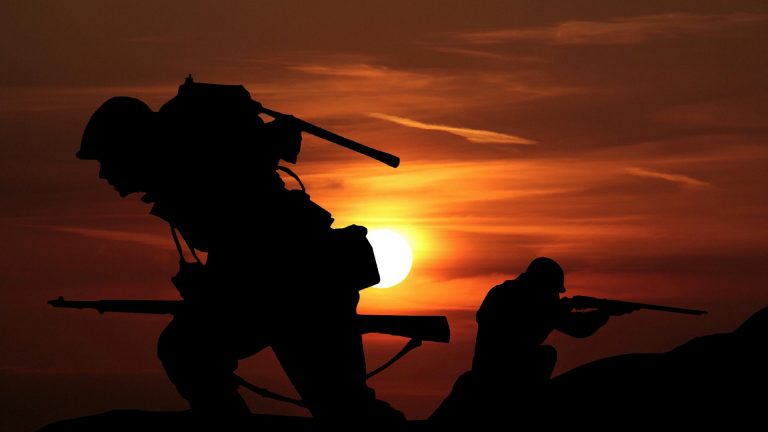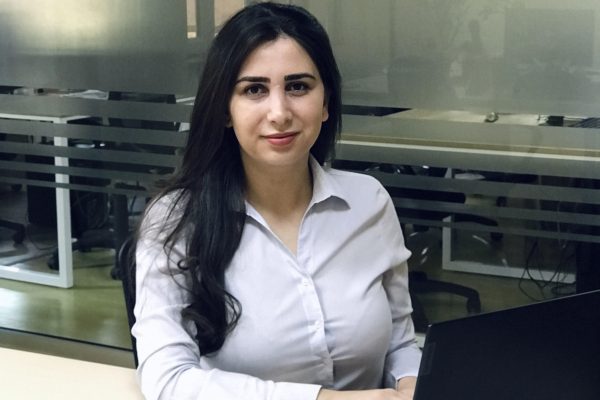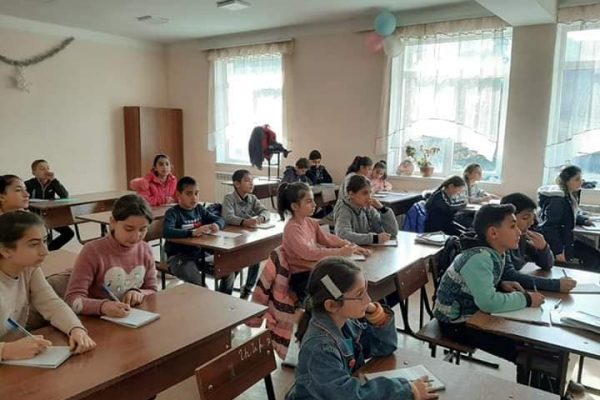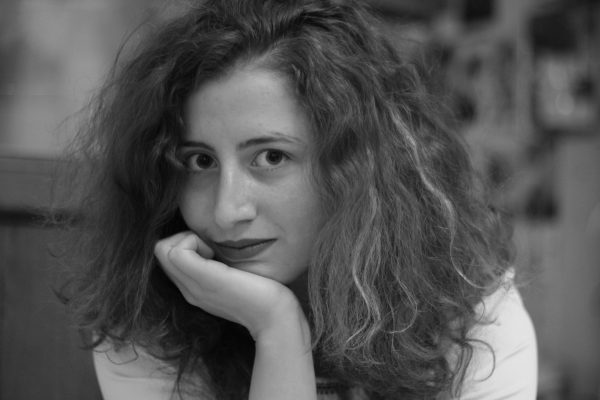Stepanakert, May 1994. A few days after the signing of the ceasefire agreement, I worked all day doing interviews and reports. In the evening, we went out for dinner with my friends. We chose a recently opened joint (it’s hard to say what it was: partcafé, part restaurant and part canteen), and it made us happy that some kind of eatery opened in our town. The place had several tables covered with thick kitchen oil cloths. At one of the tables, a group of military men sat with a nice young woman. Amongst the men in camouflage with their beards and moustaches, she was the odd one out. She did not look likean ex-combatant, and it was unlikely she was the wife of one of those men, because in Nagorno-Karabakh, wives receive their husbands’ friends at home, not in a café, and do not normally eat outwith an all-male group.
My thoughts were interrupted by a familiar voice calling, “Hi, Zhanna!” One of the men got up from the table and started walking towards me. I could not see his face at first. He was an old intimate friend from long before the war. We started chatting about our families and common friends: who went where, who was alive and who no longer was. At some point, I dared to ask about the woman sitting at their table. He said, “I will tell you her story but you must promise that you won’t publish it in the media.” I agreed, of course, and then he told me the story.
“We were preparing for a military operation. Our unit was broken down into several groups of five to seven soldiers. Each group was to take a different route, and together we were to surround and liberate settlement Х. I do not know what exactly happened: maybe our group strayed from the planned route, or maybe we were short of intel, but all of a sudden, we realized that we were surrounded. We could hear Azerbaijani spoken all around us. We could not retreat and we could not go forward. All we could do was take cover. We found something like a heap of stones and a bit of forest. It was sparse but better than an open space. We just sat there and said nothing. It felt like at any minute we would be discovered, and if they shot us, that would be bad but not the worst. What if they took us prisoner? We could not let that happen. Our commander said it would be silly to hope for salvation, so our options were to fight until each only has one cartridge left, and, once discovered, to off ourselves before they get us. He added, “We must say good bye to our families and ask for forgiveness. Let’s stay mum for a while so each can speak to himself.” For about three minutes, all kept silent. We did not even look at each other. Suddenly one of the guys said, “This has happened before, and it will happen again. This is war. Our mothers and wives know that we might not come back. It’s all been said a million times. Me, there is something I really regret. I had this girlfriend, and she was special. There was no one like her. Butshe did not become mine. Here I am sitting and thinking that I am going to die now, and she did not become mine. There were many women in my life, then I married, then again there were lots of women, but it makes me crazy when I think that I am going to die without having held her.” While he spoke, we all froze at first and then laughter broke out. The guys were roaring with laughter and saying things like, “man, you are incorrigible, what a womanizer!”, “girls is all he can think about.” For a moment, we forgot where we were and what lay ahead, and then we heard voices in Armenian calling, “Guys, where are you?” Our guffaw was so loudthey probably heard us from miles away.Then, when the battle was over, I came up to that guy and told him, “If we both live, and a day comes when I meet you with that girl, just tell me, “it’s that very person.” I promise, I will ask the two of you out for dinner and also invite all the guys who were with us today.” So, today is that day, and she is that very person.”
Author – Zhanna Krikorova, Head of “Brodyachaya sobaka” Theatrical Group
The post is part of a project on Engaging society and decision-makers in dialogue for peace over the Nagorno-Karabakh conflict implemented by the Caucasus Institute and funded by the UK Government’s Conflict, Stability and Security Fund. The opinions and statements that are made in the publication may not coincide with the official position of the UK Government.





